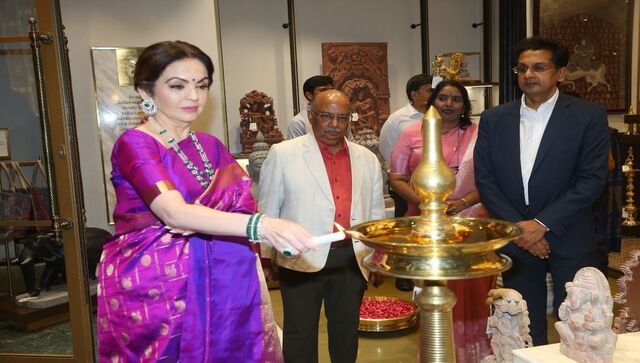Telecom stocks interpreted the new draft policy unveiled yesterday as broadly positive and rose two and a half percent at yesterday’s closing. And that positive feeling has split over to Tuesday as well, if markets this morning were an indication.
The draft policy released on Monday proposes to let cellular carriers share, pool and trade spectrum and allow for consolidation in the crowded 15-player industry. The key goal clearly is the ‘one-nation one license’ clause which is set to end roaming charges in India.
Free roaming could see some sections of industry calling for a hike in base rate
India is currently divided into 22 zones and subscribers pay premium prices for outgoing calls on roaming and incoming calls are also charged. While end-consumers would cheer the end of roaming charges, it will hit the bottomline of telecom companies says, Siddharth Zarabi, economic policy edit0r at CNBC-TV 18.Almost 8.3 percent of GSM operators’ revenue comes from roaming and 5 percent from CDMA. If that were to go there might be a situation where some sections of industry would call for hiking base rates, said Zarabi.
Brokerage Edelweiss Securities said Bharti and Idea generate about 3 percent of revenues from national roaming and expected their revenues to be hit by 1.5 - 2 percent.
Roaming charges to be abolished in a phased manner
However, Macquarie said in a report that even though domestic roaming contributes 5-6 percent of revenues and 6-8 percent of their operating profit, the impact would not be “material” as roaming charges are expected to be abolished in a phased manner and operators would have time to adjust pricing to compensate for this.
An exit policy through the back door
The draft policy has made it clear that an exit policy differs from a surrender policy. Moreover Rajeev Chandrasekhar, a Rajya Sabha MP, in an interview with CNBC TV-18 , said the finance ministry has proposed a windfall exit tax on companies that are exiting licenses which they got in 2008 at 2001 prices. In other words, an investor can exit or surrender the license and walk away from the license fee as and when he wants. But by introducing a separate policy the government is cushioning the new telcos from facing any legal action in the future. Chandrasekhar disagrees with the government: “It’s not the government’s job to provide exit for investors who made investments knowing fully when what the rules of the game are.”
Difference between an exit policy and surrender policy
Chandrasekhar believes such nomenclatures have been used by the telecom authority TRAI just to make life more difficult. Since telecom is a free market there should not be any entry or exit policies for investors who are well aware of the game. But at the same time, Chandrasekhar warns, “you can’t have a situation where companies that have not met the roll out obligation have been given an exit policy. "
New telecom policy silent on M&As
It was silent on details for future M&A rules and on key issues such as pricing of second-generation spectrum, a proposed one-time levy on mobile firms for additional spectrum they already hold and proposed re-farming of spectrum at the time of licence renewal.
“There appears no doubt that the (policy) is a step in the right direction. Some issues remain unresolved but no new concerns have been added either,” Macquarie Capital analysts wrote in a note to clients.
“While we are not overwhelmed, we are now more confident that the general regulatory regime will promote clarity, growth and consolidation,” the analysts wrote, adding they expected the new rules to benefit incumbent carriers such as Bharti Airtel and Idea Cellular.
Rationalisation of taxes will provide relief, says Bharti Airtel
Meanwhile Bharti Airtel in a statement to CNBC-TV 18, said “Proposal to give infrastructure status to the telecom sector and rationalization of taxes & levies will provide much needed relief.”
Shares in the country’s top mobile operator, rose as much as 4.6 percent, while second-ranked Reliance Communications gained 3.4 percent and fourth-ranked Idea rallied 4.8 percent in a Mumbai market that climbed more than 1 percent.
Idea too took the news positively and said “We will actively participate in consultations as the country formulates its new telecom policy.”
Another telecom company MTS India said “Equally significant would be the release of policy details specific to a range of issues including delinking of spectrum & telecom licence, allowing of spectrum trading, pooling & sharing & also new M&A guidelines.”
Telecom Minister Kapil Sibal said on Monday the ministry was consulting the sector regulator on issues including M&A and spectrum pricing and would set rules later.
As far as policies go - the latest attempt by Kapil Sibal could dent operator revenues, unless local call tariffs go up. The policy will also strive to create a true, unified license across services and service areas.
Government not clear on 2G spectrum
Although Sibal announced on Monday that all 2G spectrum issues will be dealt with separately in a new Spectrum Act, the government is still very vague on spectrum auctioning and pricing. Players are left to speculate whether there will be a re-farming or whether additional fees will be levied on them as their licenses come up for renewal soon.
However, Jaideep Ghosh , sector analyst at KPMG, is confident that the new policy would not lead to any significant cost of migration for existing players.
Watch video:No real roadmap for telecom in India, says MP Chandrasekhar
With inputs from Reuters


)




)
)
)
)
)
)
)
)